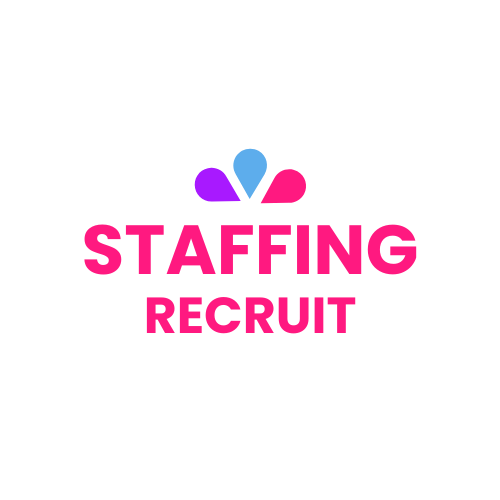What to Expect During the Healthcare Hiring Process
The healthcare industry continues to grow rapidly, creating numerous career opportunities across various specialties and roles. From hospitals to private practices, healthcare organisations maintain rigorous hiring standards to ensure patient safety and quality care delivery.
The healthcare hiring process differs significantly from other industries due to its unique requirements:
- Strict compliance with medical regulations
- Extensive background screening
- Specific certification verifications
- Multiple interview stages
- Mandatory drug testing
Understanding these requirements helps candidates navigate the hiring journey with confidence. Whether you’re a recent graduate or an experienced professional, knowing what to expect at each stage of the process increases your chances of success.
This guide walks you through the essential steps of healthcare hiring – from initial application to final onboarding. You’ll learn proven strategies for presenting your qualifications, preparing for assessments, and handling interviews effectively. We’ll also explore the critical post-offer requirements that set healthcare hiring apart from other industries.
1. Understanding the Healthcare Hiring Process
The healthcare hiring process follows a systematic approach designed to identify qualified candidates while maintaining high standards of patient care and safety. This structured recruitment journey consists of several key stages:
1. Initial Application Phase
- Online submission of resumes and credentials
- Completion of detailed application forms
- Verification of basic qualifications
2. Screening and Assessment
- Review of professional licenses
- Skills evaluation tests
- Behavioral assessments
- Technical knowledge verification
3. Interview Sequence
- Phone screenings with HR
- Department-specific interviews
- Panel discussions with healthcare teams
Different healthcare organisations may customise these steps based on their specific needs:
1. Large Hospital Systems
- Multiple rounds of interviews
- Extensive technical assessments
- Group evaluation sessions
2. Private Practices
- Streamlined hiring process
- Direct interaction with practice owners
- Focus on cultural fit
3. Specialised Medical Facilities
- Role-specific skill demonstrations
- Department shadowing
- Equipment proficiency tests
This structured approach benefits both parties – employers can systematically evaluate candidates’ qualifications, while applicants gain clear expectations of the recruitment timeline and requirements. Healthcare organisations prioritise this methodical process to ensure patient safety, maintain regulatory compliance, and build effective medical teams.
2. Application Submission and Review
Your resume is your first chance to make an impression in the healthcare hiring process. A well-crafted, professional resume highlights your relevant skills, certifications, and experiences that match the position requirements. Here are some key elements to include for a strong application:
Resume Components for Healthcare Roles:
- Clear presentation of current licenses and certifications
- Detailed clinical experience with specific responsibilities
- Relevant continuing education and professional development
- Technical skills and healthcare software proficiency
- Patient care achievements and outcomes
Tailoring Your Application:
Healthcare employers are looking for candidates who closely match their requirements. To increase your chances of getting noticed, it’s important to study the job posting carefully and customise your application accordingly. Here are some strategies to consider:
- Using keywords from the job description
- Highlighting specific experiences that match required qualifications
- Quantifying achievements with metrics when possible
- Including relevant specialty areas and patient populations
The Recruiter’s Review Process:
Once you’ve submitted your application, it will go through a review process conducted by healthcare recruiters. Understanding how they evaluate applications can help you tailor yours effectively. Here are the key steps involved in their review process:
- Initial screening for mandatory qualifications
- Verification of licenses and certifications
- Assessment of experience alignment with job requirements
- Evaluation of soft skills through professional presentation
- Cross-referencing with internal databases and previous applications
A strong application package demonstrates your understanding of the role’s requirements and your capability to meet them. Recruiters look for candidates who show attention to detail and professional commitment through their application materials.
3. Assessment Phase: Online Tests and Interviews
Healthcare employers use different assessment tools to evaluate candidates’ skills, knowledge, and decision-making abilities. These assessments help organisations find qualified professionals who meet their standards of patient care and workplace culture.
Common Assessment Types:
1. Cognitive Ability Tests
- Problem-solving scenarios
- Critical thinking evaluations
- Mathematical calculations relevant to medication dosages
- Reading comprehension assessments
2. Situational Judgment Tests
- Patient interaction scenarios
- Conflict resolution cases
- Emergency response simulations
- Team collaboration exercises
3. Technical Skills Assessments
- Medical terminology knowledge
- Electronic Health Record (EHR) proficiency
- Equipment operation understanding
- Clinical protocols familiarity
Preparation Strategies:
- Practice similar online tests available through career websites
- Review clinical scenarios and standard protocols
- Time yourself during practice sessions
- Ensure stable internet connection and quiet environment
- Familiarise yourself with the testing platform interface
- Read instructions carefully before starting each assessment
Many healthcare organisations now include digital interviews in their assessment process. These interviews can be pre-recorded video responses or live virtual meetings. Candidates should approach these digital interactions with the same level of professionalism as in-person interviews, including appropriate dress code and professional background settings.
4. Navigating the Interview Process
Healthcare interviews follow a structured progression designed to evaluate candidates thoroughly. The process typically begins with a phone screening interview conducted by HR representatives. These initial conversations assess basic qualifications, salary expectations, and cultural fit.
Successful candidates advance to hiring manager interviews, which delve deeper into:
- Clinical expertise and technical skills
- Problem-solving abilities
- Patient care philosophy
- Team collaboration experience
Many healthcare organisations implement panel interviews where candidates meet with multiple stakeholders, including:
- Department directors
- Clinical supervisors
- Potential team members
- Senior nursing staff
Professional Presentation Tips:
Virtual Interviews
- Test technology beforehand
- Choose a quiet, well-lit location
- Position camera at eye level
- Maintain direct eye contact
In-Person Meetings
- Wear professional attire in neutral colors
- Arrive 15 minutes early
- Bring extra copies of credentials
- Practice confident body language
Non-Verbal Communication:
- Maintain good posture
- Use natural hand gestures
- Mirror interviewer’s communication style
- Display active listening through nodding and appropriate facial expressions
Healthcare interviews often include scenario-based questions to assess clinical judgment and patient care approaches. Prepare specific examples demonstrating your expertise and commitment to quality healthcare delivery.
5. Background Checks, Drug Testing, and Onboarding
Healthcare organisations prioritise patient safety through rigorous pre-employment screening processes. The background verification typically includes:
- Criminal history checks at state and federal levels
- Verification of educational credentials
- Professional license validation
- Employment history confirmation
- Office of Inspector General (OIG) sanctions check
- Social Security number trace
Drug testing remains a critical component of healthcare hiring. Most facilities require:
- Pre-employment drug screening
- Random drug testing throughout employment
- Post-accident substance testing
- Reasonable suspicion testing
The onboarding phase begins after passing these preliminary checks. New hires receive:
- Employee Handbook: Detailing workplace policies and procedures like this one from Temple University
- Benefits Package: Health insurance, retirement plans, paid time off
- Orientation Schedule: Department-specific training dates
- Compliance Training: HIPAA, safety protocols, infection control
- ID Badge and System Access: Security clearance and login credentials
Many healthcare facilities use digital onboarding platforms to streamline document submission and training completion. This system allows new employees to:
- Upload required documentation
- Complete mandatory training modules
- Sign necessary employment forms
- Access orientation materials
- Schedule required health screenings
The entire pre-employment and onboarding process can take 2-4 weeks, depending on the organisation’s protocols and the position requirements.
Conclusion: Your Pathway to a Successful Career in Healthcare Hiring Process
The healthcare hiring journey presents unique opportunities for dedicated professionals ready to make their mark in this rewarding field. A successful hiring experience stems from:
- Continuous Learning and Growth
- Regularly update your skills and certifications
- Stay informed about industry trends
- Seek feedback after interviews to improve future performance
- Proactive Career Management
- Maintain an updated portfolio of achievements
- Network with healthcare professionals
- Track job market developments in your specialty
Your understanding of the hiring process serves as a valuable tool for career advancement in healthcare. Each application, interview, and assessment builds your professional confidence and expertise. Remember: healthcare organisations seek candidates who demonstrate both technical competence and genuine passion for patient care. By approaching each step with preparation and authenticity, you position yourself for success in this dynamic field.
Your healthcare career journey starts with mastering the hiring process – embrace each stage as an opportunity to showcase your potential.

